Filter by
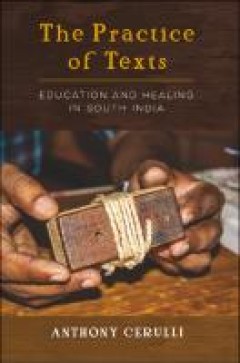
The Practice of Texts: Education and Healing in South India (Edition 1)
The Practice of Texts examines the uses of the Sanskrit medical classics in two educational institutions of India’s classical life science, Ayurveda: the college and the gurukula. In this interdisciplinary study, Anthony Cerulli probes late- and postcolonial reforms in ayurvedic education, the development of the ayurvedic college, and the impacts of the college curriculum on ways that ayurved…
- Edition
- Ed. 1
- ISBN/ISSN
- 9780520383555, 9780520383555
- Collation
- -
- Series Title
- -
- Call Number
- 294.5 CER p

The Khilafat Movement in India 1919-1924
Indonesia
- Edition
- Ed. 1
- ISBN/ISSN
- 9789004286924
- Collation
- 272
- Series Title
- Verhandelingen van het Koninklijk Instituut voor Taal-, Land- en Volkenkunde, 62
- Call Number
- 950 NIE k
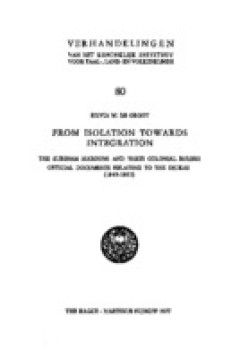
From Isolation towards Integration
From Isolation towards Integration was originally published in Dutch as Volume 41 (1963) in the series Verhandelingen van het Koninklijk Instituut voor Taal-, Land- en Volkenkunde.
- Edition
- Ed. 1
- ISBN/ISSN
- 9789004287112
- Collation
- 126
- Series Title
- -
- Call Number
- 950 DEG f
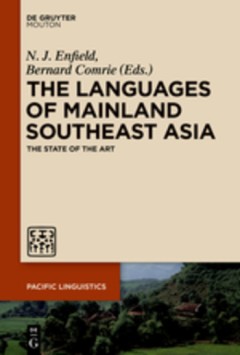
Languages of Mainland Southeast Asia: The State of the Art
Linguistics; Anthropology; Mainland Southeast Asia
- Edition
- -
- ISBN/ISSN
- 9781501501685
- Collation
- -
- Series Title
- -
- Call Number
- -

Inscriptions of the Aulikaras and Their Associates
The Aulikaras were the rulers of western Malwa (the northwest of Central India) in the heyday of the Imperial Guptas in the fifth century CE, and rose briefly to sovereignty at the beginning of the sixth century before disappearing from the spotlight of history. This book gathers all the epigraphic evidence pertaining to this dynasty, meticulously editing and translating the inscriptions and an…
- Edition
- -
- ISBN/ISSN
- 9783110644722
- Collation
- -
- Series Title
- -
- Call Number
- 054
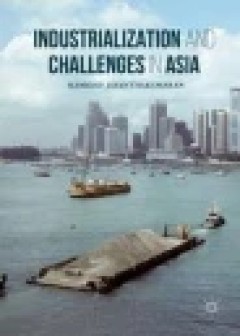
Industrialization and Challenges in Asia
This book provides a much-needed review of Asia’s economic growth and its challenges in the context of post-war industrialization. In the early 1990s, the World Bank (1993) recognized eight high-performing Asian economies (HPAEs) (Japan, the Asian tigers, Indonesia, Malaysia and Thailand) and named them the ‘Asian economic miracle’. In the recent past, the term ‘emerging economies’ ha…
- Edition
- -
- ISBN/ISSN
- 978-981-10-0823-8
- Collation
- XXIV, 265
- Series Title
- -
- Call Number
- 330 JAY i

Uncovering Pacific Pasts: Histories of Archaeology in Oceania
Objects have many stories to tell. The stories of their makers and their uses. Stories of exchange, acquisition, display and interpretation. This book is a collection of essays highlighting some of the collections, and their object biographies, that were displayed in the Uncovering Pacific Pasts: Histories of Archaeology in Oceania (UPP) exhibition. The exhibition, which opened on 1 March 2020,…
- Edition
- Ed. 1
- ISBN/ISSN
- 9781760464875, 9781760464868
- Collation
- 614
- Series Title
- -
- Call Number
- 930.1 UNC u
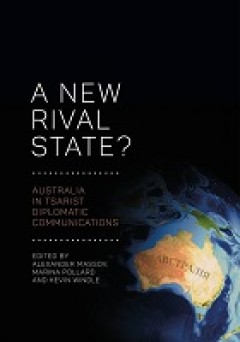
A New Rival State?
"A New Rival State? is a unique collection of dispatches written in 1857–1917 by the Russian consuls in Melbourne to the Imperial Russian Embassy in London and the Russian Foreign Ministry in St Petersburg. Written by eight consuls, they offer a Russian view of the development of the settler colonies in the late nineteenth century and the first years of the federated Commonwealth of Australia…
- Edition
- -
- ISBN/ISSN
- 9781760462291
- Collation
- -
- Series Title
- -
- Call Number
- -
Iconographies of Occupation Visual Cultures in Wang Jingwei’s China, 1939�…
Iconographies of Occupation is the first book to address how the “collaborationist” Reorganized National Government (RNG) in Japanese-occupied China sought to visualize its leader, Wang Jingwei (1883–1944); the Chinese people; and China itself. It explores the ways in which this administration sought to present itself to the people over which it ruled at different points between 1939, whe…
- Edition
- -
- ISBN/ISSN
- 9780824887711
- Collation
- -
- Series Title
- -
- Call Number
- -
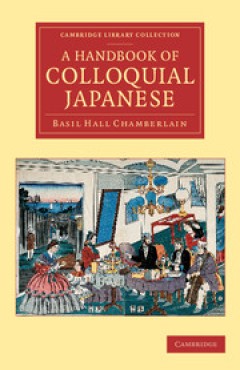
A Handbook of Colloquial Japanese
Travelling in order to recover from a nervous breakdown, Basil Hall Chamberlain (1850–1935) arrived in Yokohama, Japan, in May 1873. He was immediately fascinated by traditional Japanese culture. At the same time, the national drive for modernisation in the wake of the Meiji Restoration had created a demand for teachers of English. Chamberlain was taken on as a tutor in the Imperial Japanese …
- Edition
- -
- ISBN/ISSN
- 9781316134405
- Collation
- -
- Series Title
- -
- Call Number
- -
 Computer Science, Information & General Works
Computer Science, Information & General Works  Philosophy & Psychology
Philosophy & Psychology  Religion
Religion  Social Sciences
Social Sciences  Language
Language  Pure Science
Pure Science  Applied Sciences
Applied Sciences  Art & Recreation
Art & Recreation  Literature
Literature  History & Geography
History & Geography